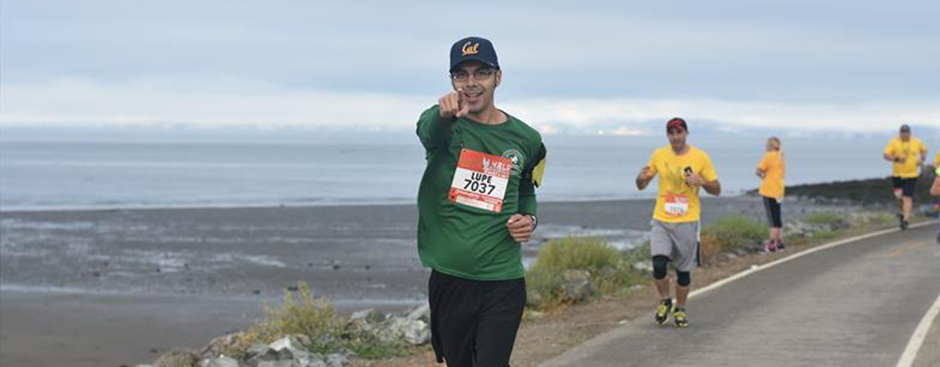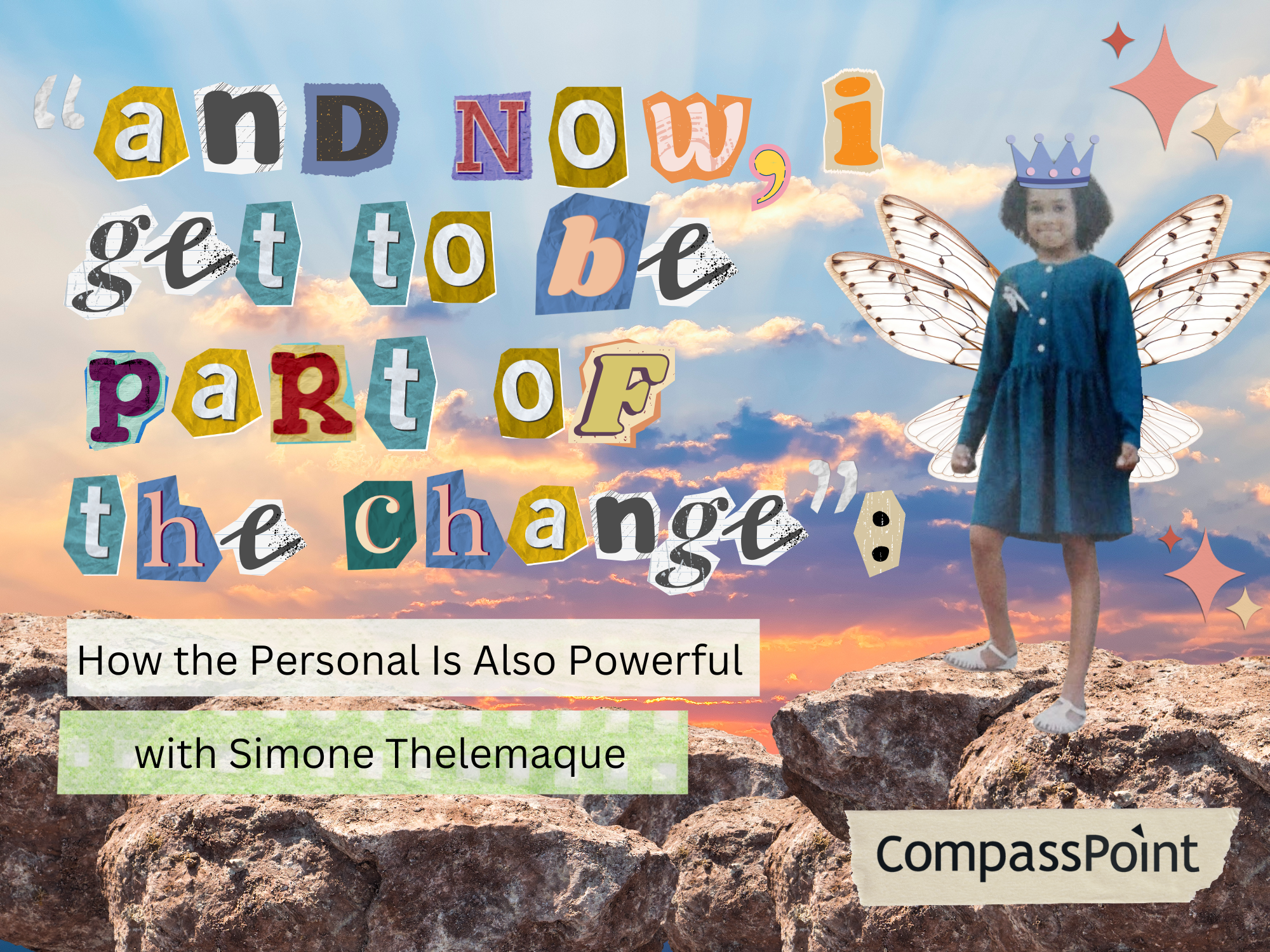What can long distance running teach us about deep equity work? Project director Lupe Poblano explores how his passion for running helps him think about practicing equity.

There are certain things we do that are important to us. They aren’t activities or interests. And they are deeper than hobbies. There are certain things we do that are our passions. They are an expression of something profound and true inside each of us. They are extensions of who we really are. When we talk about these passions with others, we aren’t really talking about the passions themselves—we’re talking about our values.
Running is one of my passions. It’s actually a cultural connection for me that has nothing to do with patriarchal white supremacist fitness culture or the capitalistic Running Industrial Complex. My current hero is María Lorena Ramírez, an indigenous women who won an ultra-marathon in Mexico while running in her damn huaraches. Mi gente!
Another one of my passions is doing deep equity work. I actually see them as intrinsically connected. There is so much I learn while running that I see applying to equity, and vice versa. They are both a discipline and a practice. When I am talking about running, and equity, what I am actually talking about are some of my core values: community, accountability, and justice.
The difference between pain and injury
In running, you will get hurt and you will feel pain. There is no way to run consistently and not feel some amount of pain in your muscles, joints, or psyche. Running at distance is not a painless process. Having an intentional practice around running requires you to run through pain to meet your goals. After some time, you learn to use the pain as feedback as breakdowns in your form, routines, or wear and tear on your tools can cause damaging increases in pain.
Likewise, in doing deep equity work, you will get hurt and you will feel pain. There is no way to do this work consistently and not feel some amount of pain: mentally, spiritually, emotionally, and even physically. Doing organizational equity work is not a painless process. It hurts to face difficult truths in yourself and others. Confronting interpersonal acts of emotional violence will be painful. We often talk about systemic and institutional oppression and rightly so. Yet, systems don’t feel pain—people feel pain. You feel pain. This is part of the work of dismantling these institutions.
And while pain is an inevitable part of both processes, injury is something different. It’s important to know the distinction. We should not push through injury; we need to heal when we are injured emotionally or physically. In running, we are injured when there is damage to the internal structures that hold us together. In equity work, we are injured when the traumatic wounds we carry in our hearts become so large that we end up leading from that pain instead of leading from the places we feel loved and full-hearted. Pushing through these injuries causes harm to ourselves and others.
We must rest, heal, and tend to self-care. Our ability to persist depends on this.
Accomplishing the impossible
Distance running teaches you that you can go beyond your pre-conceived limits and that anything is possible. I first started running about five years ago. Before that, you would have had to chase me with a sharp object to get me to run. I started small and slowly, with one of those “Couch to 5K” programs that have you walk for three minutes and run for one. I never thought that one day I’d be competitively running half marathons. As a runner, each time you run at a distance or pace that you once thought impossible, you realize that your reservoir for resilience is deep. You build a practice for running through the pain, and you learn that you can push beyond your own self-imposed limits. It’s always there. As long as you don’t quit on you, you can do pretty much anything.
Deep equity is also about endurance and resilience. As folx of color, our very lives are a case study in resilience. We are the survivors of survivors. We know how this works. And yet, because of internalized oppression, especially internalized racial oppression (IRO), we put pre-conceived limits on our abilities, capacity, and potential. To do deep equity work in community with others means extending beyond what you think is possible, both individually and collectively. It means that when things get hard and seem bleak, we reach deep down into our well of gifts. There is magic in us. People of color have superpowers that we learn to hide in order to conform to white supremacist society. We’re like X-Men in that way. Yet doing deep equity forces us to confront and push beyond IRO. In this, we realize our brilliance is limitless. Our superpowers are unstoppable. As long as we don’t quit on ourselves, we can do pretty much anything.
An event and a process
Running as a passion is both about meeting a specific goal and about developing a practice. Running a race for the sake of crossing a finish line has never been of interest to me. If I run a race and cannot move the next day, then what I did was not sustainable; it was actually harmful. In part, success is defined by how I feel the day after the race. The idea of a race is appealing because it is the manifestation of my value of accountability. Training for a race requires accountability. What do you do when there is no one watching? When there are no crowds or medals—do you still maintain your practice and rituals? The lead up to the race is just as important as how I perform during the race.
Running is not about crossing an arbitrary finish line or collecting a medal—it is about developing a lifelong practice. Similarly, getting to deep equity means embodying deep equity work all the time.
For me, a meditation on running is also an examination of deep equity work. I have no doubt that my practice in one informs and elevates the other. The last connection between the running and equity is joy. As a runner, I distinctly remember the runs that felt like pure joy, or the moments within difficult runs where I felt like I could run forever and that somehow anything is possible. And in the deep equity work I experience at CompassPoint and with other organizations, I can recount so many moments of joy—where we lived into liberation together and experienced our own humanity in brave and new ways. Anything in this life worth doing is worth working for, and when it comes to equity and running, I am here for it.
Lupe Poblano is a Project Director at CompassPoint. Before joining the CompassPoint team, Lupe most recently served as the Director of Evaluation, Learning, and Strategy at Habitat for Humanity Greater San Francisco. You can reach him by email. Follow him on twitter at @LupePoblano.
Read other blog by Lupe:





Submit a comment